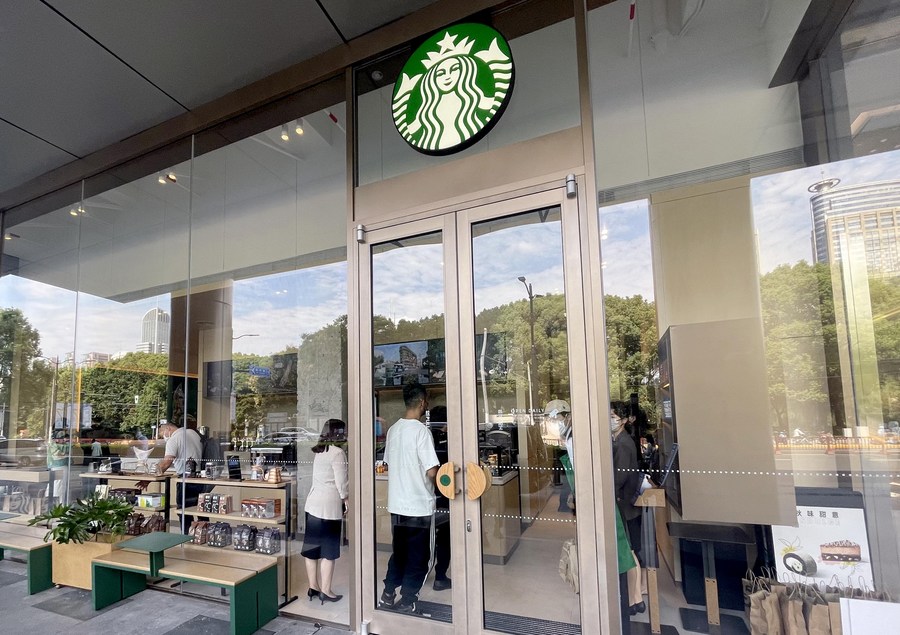Global beverage giants instill long-lasting confidence in Chinese market

Photo taken on Sept. 27, 2022 shows a Starbucks store in downtown Shanghai, east China. (Xinhua/Liu Ying)
SHANGHAI, Sept. 19 (Xinhua) -- With a new coffee innovation park entering into operation in east China's Jiangsu Province, global beverage chain Starbucks has set a new milestone in its business in China.
The park enables China to be the first market in the company's global network to complete a fully scaled vertical integration "from bean-to-cup." With an investment of 220 million U.S. dollars, it is also the coffee giant's largest manufacturing and distribution investment outside the United States.
"As one of the largest consumer markets in the world, China presents tremendous opportunities for Starbucks," said Laxman Narasimhan, CEO of Starbucks Coffee Company, at the launch ceremony.
"The opening of this remarkable facility -- a first for us globally -- reinforces our long-term commitment to investing in our growth in China as well as our strategy to become a truly global company," noted Narasimhan in a letter to partners on Tuesday.
Located in the city of Kunshan, about a one-hour drive from Shanghai, the park covers an area of about 80,000 square meters and incorporates a roasting plant, an integrated distribution center, and an immersive experience center.
The pursuit of high-quality development and the coverage of the whole industrial chain have become the two key words for foreign investors to increase capital in China's beverage market in recent years.
In 2020, Italian coffee brand Lavazza opened its first store in Asia in Shanghai, focusing on promoting Italian food life. U.S. coffee chain Blue Bottle Coffee, which officially entered the Chinese mainland market in 2022, set up a roasting plant since its inception to bring small-batch freshly roasted coffee beans from Yemen, Costa Rica, and Bolivia to Chinese consumers.
Following the launch of the Starbucks innovation park, construction of another project by Swire Coca-Cola Ltd., a bottler of Coca-Cola beverages, will also commence soon. Prior to the latest project, the company had already expanded its production line in China's Guangdong, setting a new record for its single investment on the Chinese mainland.
The foreign beverage giants' continuous investment demonstrates their confidence in the Chinese economy and the recognition of an ever-growing market volume of the entire Chinese market, noted Zhu Danpeng, a food industry insider.
The scale of China's coffee industry has grown from 165.1 billion yuan (about 23 billion U.S. dollars) in 2021 to 200.7 billion yuan in 2022, and is expected to reach 369.3 billion yuan in 2025, with coffee becoming a daily necessity for more Chinese consumers, according to a report jointly published by domestic commercial data analysis firm CBNData and Shanghai Jiaotong University in May.
During his previous visit to Shanghai, Narasimhan specified that though Shanghai has become the city with the largest number of Starbucks stores in the world, there is still huge growth potential in terms of the average cups of coffee purchased.
"The average person in China drinks around 12 cups of coffee a year, compared to about 200 in Japan or 380 in the United States, presenting a clear runway for a growing coffee drinking culture in one of the world's largest consumer markets," Narasimhan noted.
Starbucks, therefore, has laid out a bold blueprint for its future in the Chinese market. Currently boasting a market footprint of over 6,500 stores across more than 250 Chinese cities, it aims to operate 9,000 stores across 300 Chinese cities by 2025.


